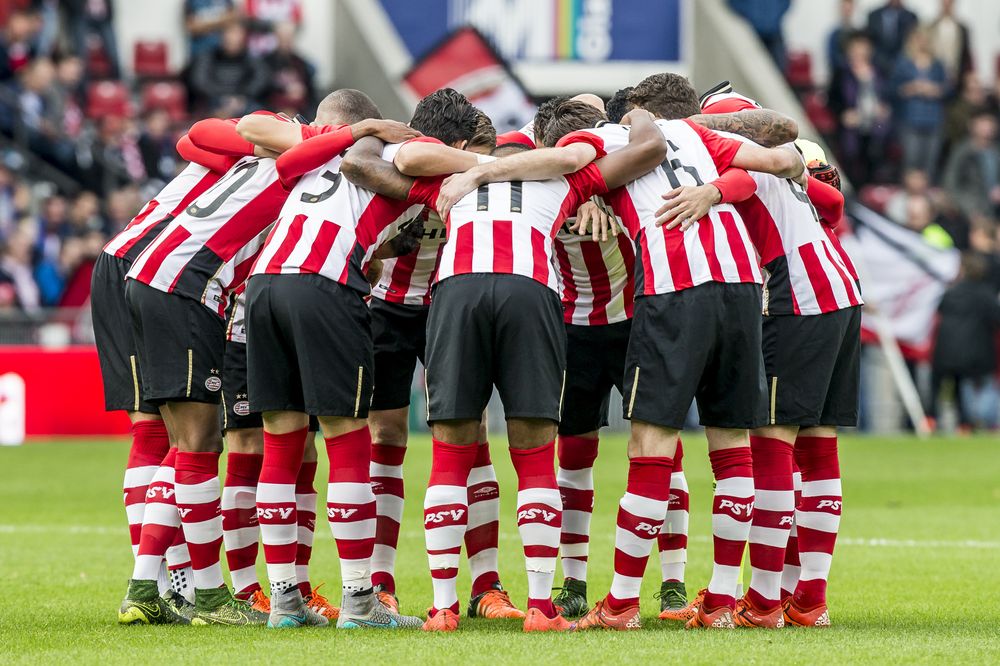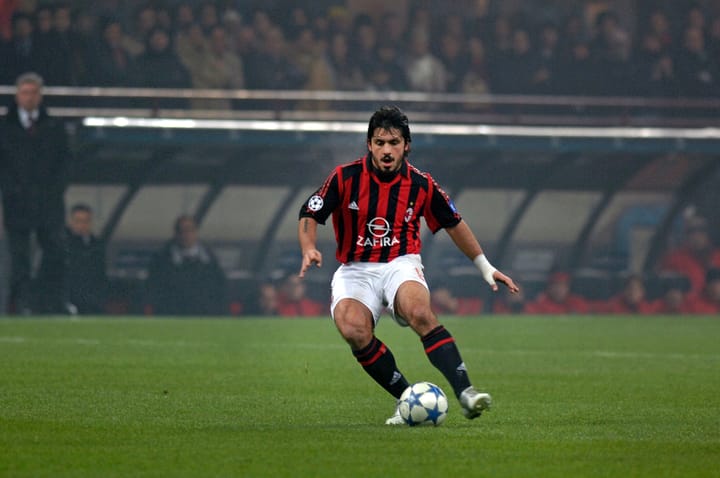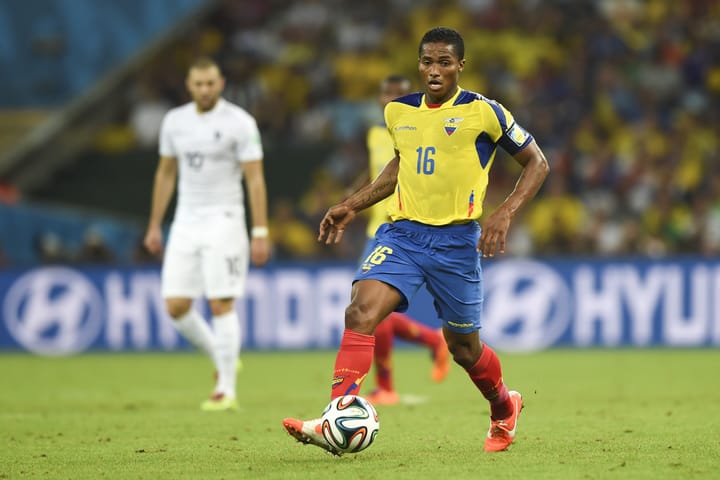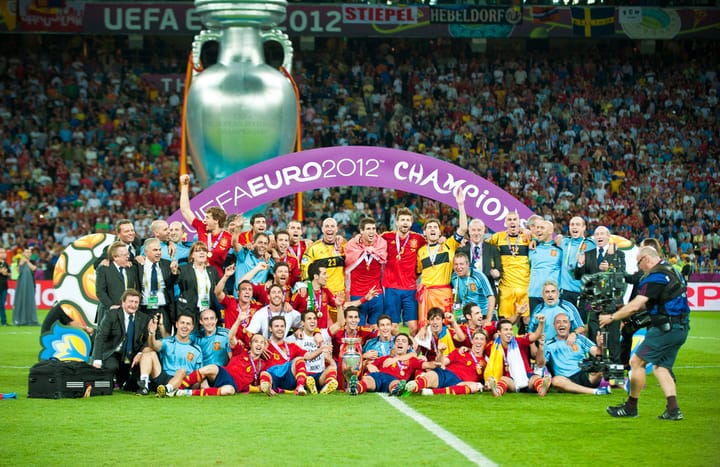Once Kings, Now Underdogs: the One-Time Champions League Winners Who Will Probably Never Win Again (2/2)
The UEFA Champions League is regarded as the most prestigious trophy in club soccer. In these two articles, we highlight the nine clubs that won it only once and probably will never win it again.

The UEFA Champions League (or Europa Cup 1, as it was called before 1993) is the ultimate pinnacle of club soccer, where the richest and most aspiring teams from Europe compete for the highest honor. Over the years, there have been several underdogs who defied the odds and emerged as champions, capturing the hearts of soccer fans worldwide. In this article, we will take a closer look at the one-time winners of this legendary trophy who created history and most likely will never win it again.
Steaua Bucarest (1986)
In 1986, Steaua Bucharest (also known as Steaua București) stunned the soccer world by winning the European Cup against all odds.
Heading into the competition, Steaua Bucharest was relatively unknown on the European stage. The Romanian club had dominated domestically, but their 1985–86 European Cup campaign was their chance to show their talent on a broader platform.
The team, managed by Emerich Jenei, harbored a group of young and talented players who would later become legends in Romanian soccer history. Key figures included Marius Lăcătuș, a potent forward, and captain Stefan Iovan. The squad was robust and tactically astute, displaying a high level of teamwork throughout their campaign.
Steaua’s path to the final saw them overcome formidable opponents such as Aalborg BK, Honvéd, and Kuusysi Lahti. Their semi-final victory against Belgian champions Anderlecht was particularly noteworthy, demonstrating their readiness for the grand stage.
On May 7, 1986, Steaua faced FC Barcelona in the final held at the Ramón Sánchez Pizjuán stadium in Seville, Spain. Barcelona, with famed players like José Ramón Alexanko and Bernd Schuster, were the favorites to win.
The match was a close one, with both teams exhibiting a careful approach. Despite Barcelona's higher possession and several chances created, Steaua’s disciplined defensive organization and teamwork thwarted Barcelona's attacking advances, forcing the match into extra time with a goalless draw at the end of regulation time. As the deadlock persisted, the winner had to be decided through a penalty shootout.
Emerging as the hero of the match was Steaua’s goalkeeper Helmuth Duckadam, who put on an astonishing display by saving all four penalties taken by Barcelona’s players, setting a record in a European Cup final. Meanwhile, Steaua converted two of their spot-kicks, securing a historic victory and becoming the first Eastern European club to win the most important European Cup.
PSV Eindhoven (1988)
In 1988, PSV Eindhoven established its place in soccer history by winning the Europa Cup 1, marking a pinnacle in the club's illustrious history.
PSV Eindhoven enjoyed great success in the middle of the 1980s, when the team dominated the Dutch domestic league. The 1987–1988 season was particularly fruitful, as they clinched the Eredivisie title without losing a single game, setting the stage for their incredible European campaign.
Under the tutelage of Guus Hiddink, a young and dynamic coach, the team possessed a perfect blend of youth and experience. The squad included captain Eric Gerets, talented defender Ronald Koeman, and forward Wim Kieft as their famous players. Together, they formed a very cohesive unit, displaying a strong sense of unity and purpose throughout their campaign.
PSV’s road to the final witnessed them facing and overcoming formidable opponents, including top clubs like Galatasaray and Bordeaux. Their biggest result happened in the semi-final, when they encountered Real Madrid. They managed to edge past the Spanish giants in a fiercely contested encounter that was resolved through an away-goals rule, underscoring the team's resilience and determination.
On May 25, 1988, PSV locked horns with S.L. Benfica at the Neckarstadion in Stuttgart, Germany. Benfica, with their rich history in European competitions, were a formidable opponent, showcasing a mix of skill and experience.
The match was a tense and closely fought affair, with neither team giving up much ground. Despite several opportunities created on both sides, the defenses stood firm, and the deadlock couldn't be broken in regular time, forcing the match into extra time. Extra time, too, failed to yield any goals, meaning the fate of the trophy would be decided through a penalty shootout.
PSV showcased remarkable coolness in the shootout, converting all of their penalties. It was their goalkeeper, Hans van Breukelen, who became the hero of the day by saving the crucial penalty from Benfica's Antonio Veloso, securing a hard-fought but well-deserved victory for PSV.
Red Star Belgrade (1991)
In 1991, Red Star Belgrade, also known as Crvena Zvezda, achieved a monumental feat by winning the European Cup (Europa Cup 1), showcasing the peak of Yugoslav soccer.
In the backdrop of a tumultuous period in Yugoslav history, Red Star Belgrade embarked on a European campaign that would bring joy and pride to many. The team was managed by Ljupko Petrović, a tactician who curated a team that balanced youth and experience masterfully.
The squad was laden with immense talent, including the likes of Dejan Savićević, Robert Prosinečki, and Darko Pančev, players who would later forge successful international careers. The team was known for its technical ability, tactical discipline, and the youthful vigor of its star players.
Red Star had a challenging path to the final, where they faced formidable teams like the Grasshoppers, Glasgow Rangers, and Dynamo Dresden. In the semi-finals, they met the German powerhouse Bayern Munich, a tie that is remembered for the dramatic late equalizer by Klaus Augenthaler, an own goal that sent Red Star to the finals on the away goals rule.
On May 29, 1991, Red Star faced the French champions Olympique de Marseille at the Stadio San Nicola in Bari, Italy. Marseille boasted a star-studded lineup, including the likes of Jean-Pierre Papin and Chris Waddle, making them favorites in the eyes of many.
The final was a tense and cautious affair, with both teams demonstrating a considerable level of respect for each other's attacking prowess. The defensive organization of Red Star was impeccable, as they managed to contain the vibrant Marseille attack throughout regular and extra time, forcing the match into a penalty shootout after a goalless draw.
During the penalty shootout, Red Star showcased immense composure and clinical efficiency, converting all their penalties. It was Red Star goalkeeper Stevan Stojanović who emerged as the hero, making a crucial save to help secure a 5-3 shootout victory and thus sealing Red Star's first European Cup title.
Olympique Marseille (1993)
In 1993, Olympique de Marseille (often referred to as l'OM) cemented their place in soccer history by becoming the first and, so far, the only French club to win the prestigious European Cup (now known as the UEFA Champions League).
During the early 1990s, Olympique de Marseille was a dominant force in French soccer under the presidency of Bernard Tapie. The 1992-1993 season was pivotal for l'OM, who were looking to make a substantial impact on the European stage after enjoying a period of domestic supremacy.
The team, under the direction of Raymond Goethals, included both seasoned players and young talent. The squad featured iconic players such as Didier Deschamps, Fabien Barthez, Basile Boli, Rudi Völler, and Abedi Pelé, creating a team rich in skill and determination.
Marseille had an impressive run in the tournament, overcoming clubs such as Glentoran, Dinamo București to reach the knockout group, which they won, with Club Brugge, Glasgow Rangers and CSKA Moscow as their opponents.
On May 26, 1993, l'OM squared off against AC Milan, one of Europe's most formidable clubs at the time, in the final held at the Olympiastadion in Munich, Germany.
The final was a tense and tactical affair. In a closely fought first half, both teams exhibited great skill and determination. The decisive moment came in the 43rd minute when Marseille's defender Basile Boli scored with a header following a corner kick delivered by Abedi Pelé. This goal would be the only one in the match, as Marseille held onto their narrow lead with a resolute defensive display, showcasing both skill and tenacity to keep the Italian giants at bay.
The victory in Munich etched Olympique de Marseille's name into the history books as the first French club to conquer Europe. The joy and celebration that ensued were unprecedented, with thousands of fans celebrating on the Old Port of Marseille. However, the joy was somewhat marred by a domestic scandal involving match-fixing in the French league, which saw them relegated to the second division.
Borussia Dortmund (1997)
In 1997, Borussia Dortmund achieved one of the highest honors in European club soccer by winning the UEFA Champions League.
In the 1996–1997 season, Borussia Dortmund entered the Champions League as the Bundesliga champions, having won the domestic league in the previous season. Managed by Ottmar Hitzfeld, a coach renowned for his tactical acumen, the team harbored ambitions of making a deep run in the prestigious tournament.
The Dortmund squad was a blend of experienced and youthful talents, including key players like Matthias Sammer, who would later win the Ballon d'Or that year, influential captain Stefan Reuter, and skilled forward Karl-Heinz Riedle.
Borussia Dortmund navigated a tough group stage featuring teams like Steaua Bucarest and Atlético Madrid. They then faced Auxerre in the quarterfinals, overcoming the French side with a 4-1 aggregate score. A remarkable victory against Manchester United in the semi-finals with a 2-0 aggregate scoreline set the stage for a grand showdown in the finals.
On May 28, 1997, Dortmund faced the defending champions Juventus in the final held at the Olympiastadion in Munich, Germany. Juventus was a formidable opponent, boasting talents like Zinedine Zidane, Alessandro Del Piero, and Christian Vieri, and was seen by many as the favorite.
Despite the expectations, Dortmund showcased a tactical masterclass from the onset. Karl-Heinz Riedle emerged as the hero in the first half, scoring two crucial goals to give Dortmund a significant advantage. Juventus managed to pull one back through a Del Piero strike in the 64th minute, but Dortmund's young striker Lars Ricken, who came on as a substitute, scored with his first touch of the game, just seconds after coming onto the field, a goal that has since become iconic in Champions League history. The match ended 3-1 in favor of Dortmund, completing a fairytale victory against a team of Juventus's stature.




